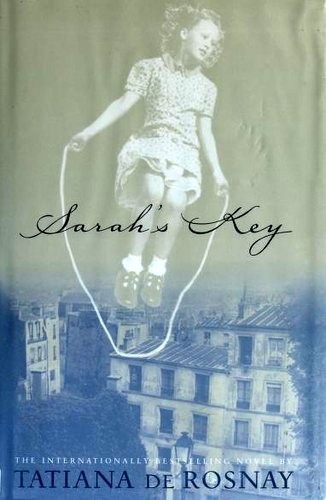MaidMerry reviewed Sarah's Key by Tatiana de Rosnay
Review of "Sarah's Key" on 'Goodreads'
3 stars
Possible spoilers.
Meh.
The author did an excellent job of creating and sustaining suspense in the first part of the novel, when the reader wonders if Sarah will get back to free her brother in time.
The story of what happened to Sarah and her family during the Nazi occupation of Paris is compelling and heart-wrenching.
However, the story of Julia is a big yawn, in spite of all the melodrama the author throws into her life. It reads like a soap opera, or like chick lit (which I loathe), and is in jarring contrast to Sarah's story. Julia is a thoroughly unlikeable character whom I just wanted to shake; and I couldn't bring myself to care about her, her daughter, her husband, her in-laws, her sister, or her unborn child. I wanted to shake the author, too, and say, "Tell me more about Sarah. Tell me more about something interesting and meaningful."
Some elements that, I think, the author meant to be fraught with meaning, such as the name of Julia's second child, are eye-rollingly predictable. Others are mystifying and beyond belief, such as when a pregnant Julia abruptly ends a family visit in America to haul her daughter off to Italy in search of Sarah's son. WTF? She lives in Paris, for cripes' sake, which is far closer to Italy than America, so this made no sense whatsoever to me. Nor could I understand why Julia felt compelled to travel halfway across the world apologize to the son for something her husband's family didn't actually do, but sort of witnessed. Huh? She seemed unbalanced to me. Equally strange was her puzzlement over pains in her abdomen while in Italy, even though she had had previous miscarriages. Ummm. Wouldn't her first thought be to suspect a problem with her pregnancy?
The writing is clumsy at times. For instance, I actually laughed out loud when I read these lines: "Then his mobile rang. He answered it. I could tell by his expression it was a woman. I wondered who. His wife? One of his daughters?"(p. 287) So, Julia can tell the gender of a person on the other end of a phone connection, just by looking at the expression on someone's face? Really? That's quite the skill. I mean, I could perhaps buy the idea that someone's expression might reveal that they are speaking with a romantic partner. But even a daughter? Amazing.
Anyway, I think I'll have to stop ranting now, before I move my cursor back up to remove another star.

